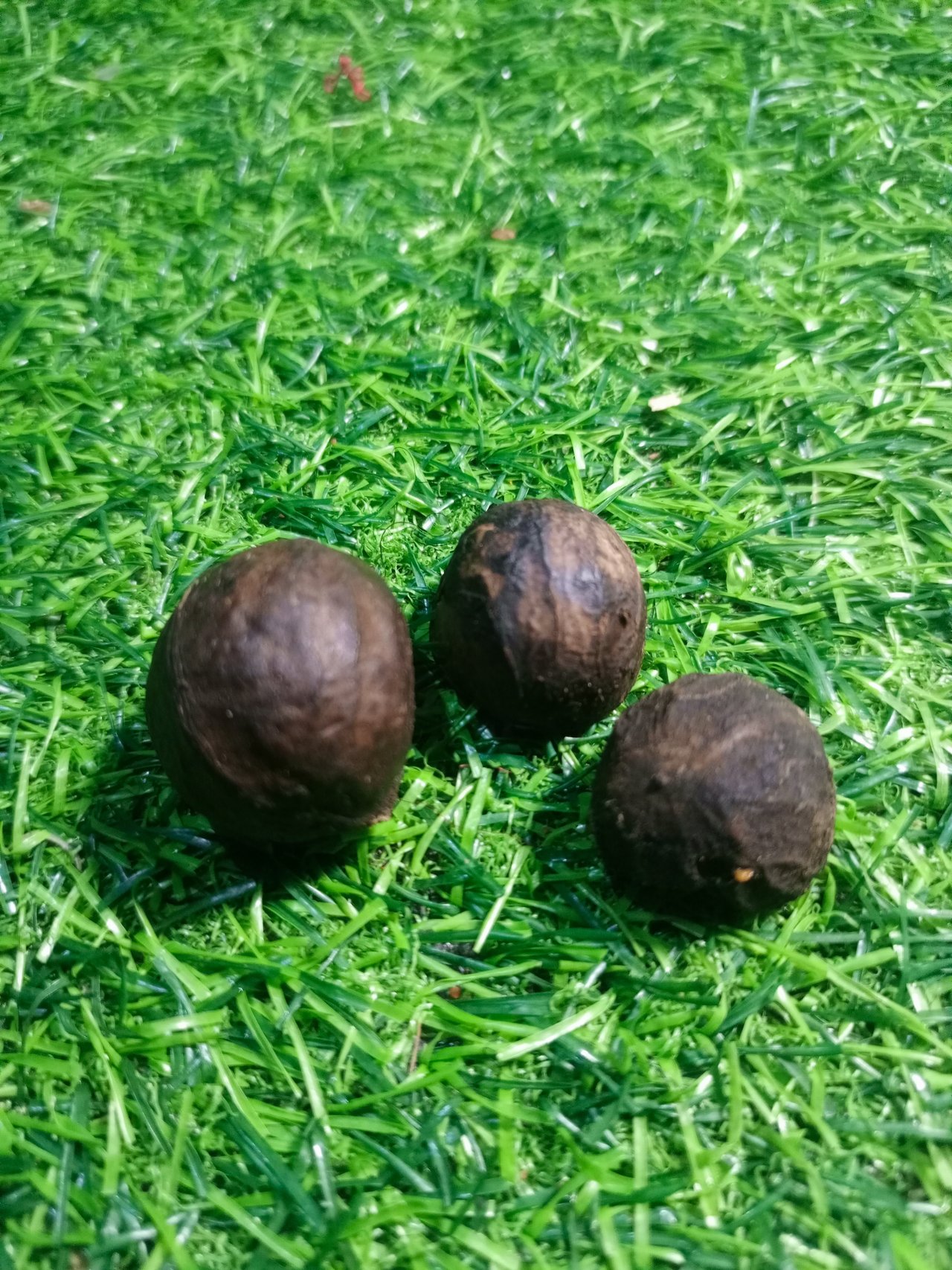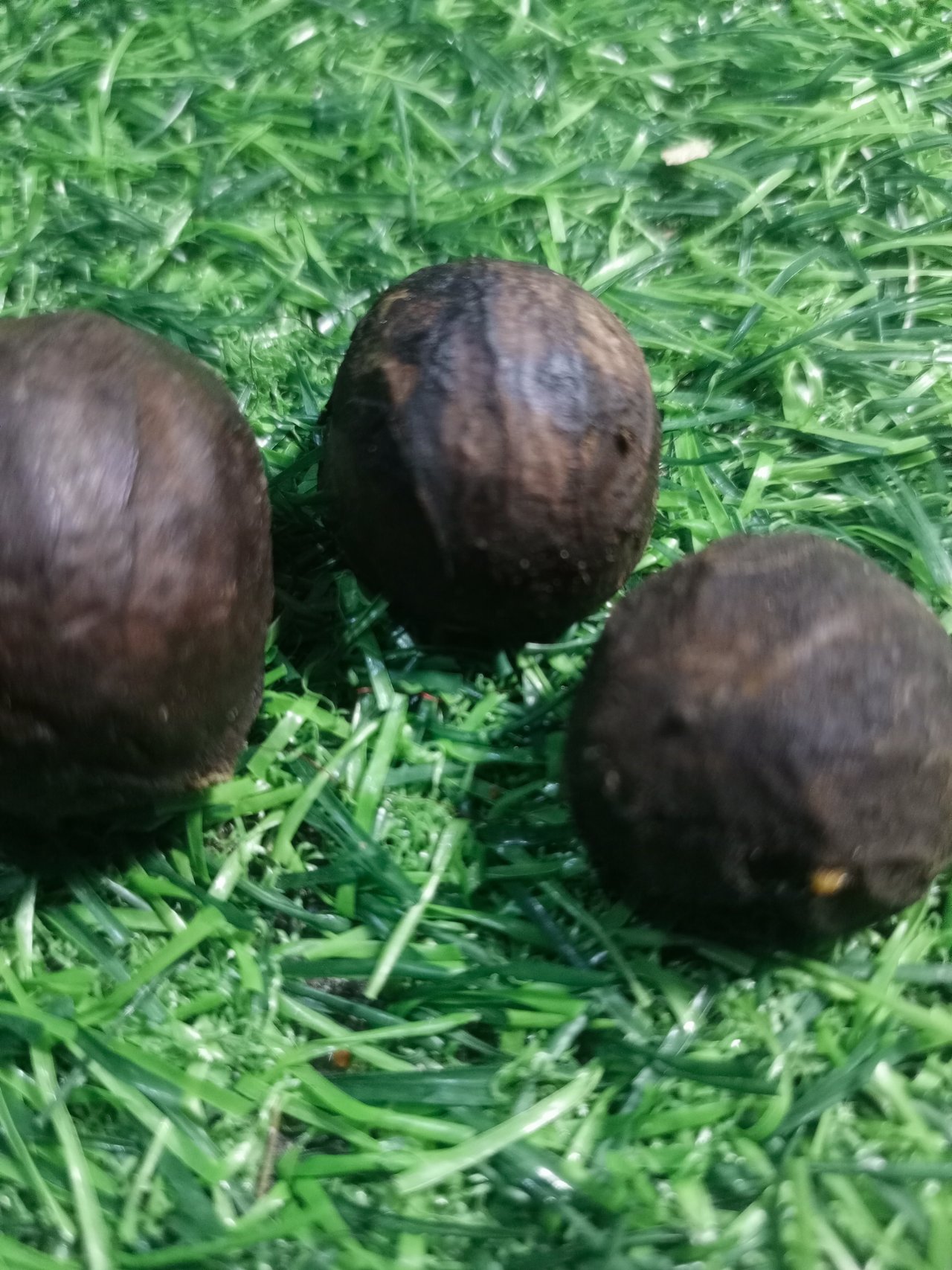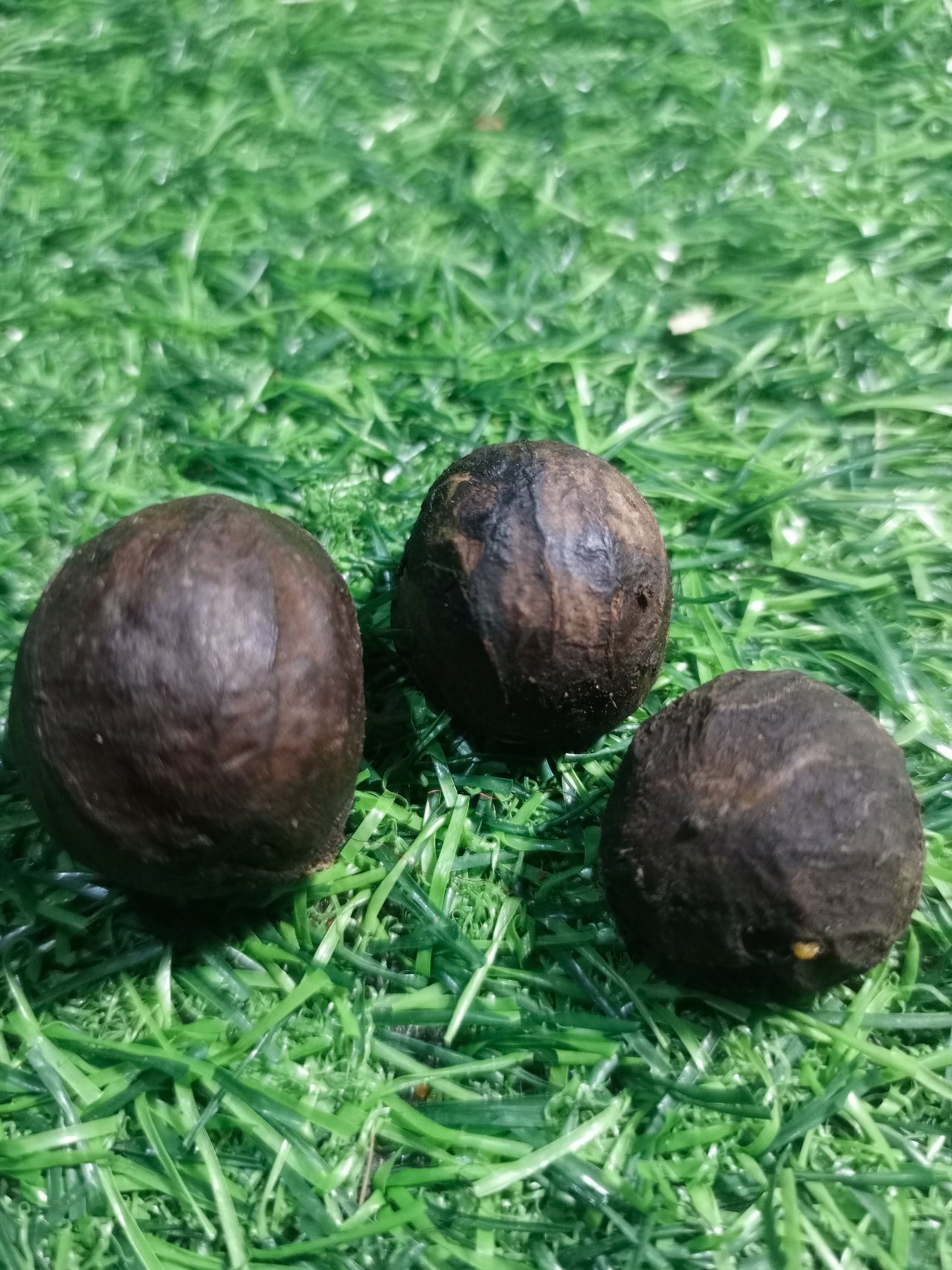The African Walnut
4 comments
In a particular time of the year, we are past that time of the year now obviously. If you walk into a local market in West Africa specifically, chances are you would come across something like a dark, oval-shaped nut that seems to look like a smooth rock . Its not a rock, newflash, it is called the African walnut, its tiny but trust me, its mighty in it own right. And yes, It deserves more attention than its gets, which of course it doesn't.

Okay, lets do this first before anything. Let’s clear up some confusion.
The African walnut is not the same as the English or Persian walnut you might be familiar with. No, it has a completely different character, scientifically known as Plukenetia conophora. Some people, particularly in Nigeria also call it “Ukpa” in Igbo or “Asala” in Yoruba. And, if you talking about both taste and benefit, the walnut is right up there . Forget groundnut, this is the African Walnut
The Unique Taste
When cooked, African walnuts have a slightly bitter, earthy kind of taste with this particular wave of sweetness in the background. The texture kind of soft at the same time firm, and some say it goes beautifully with some salt or local spices. I haven't tried that anyways. I prefer eating it just like that, no addition no subtraction. I have heard people say they’re addictive, and I can confirm this. Once you start, it’s hard to stop. I have never eaten it and got tired.
But how do you eat them or prepare them for eating ?
Here is how
Usually, the nuts are boiled in water for about 30 to 40 minutes until they’re tender. Now, Once they’re ready, you simply crack them open, I usually use my teeth to crack them open and enjoy the treasure inside. They’re a popular snack in many parts of West Africa, and most often they are eaten by students during study sessions or by families and friends in a social setting .
Any Health Benefits ?

Well aside being delicious. African walnuts are a nutritional powerhouse as a matter of fact, I just got to know this. They’re rich in protein, healthy fats, and vitamins like vitamin C, which helps boost the immune system. Now, if you ever wonder why some grandmas just don’t seem to catch colds? Maybe it’s their steady diet of walnuts. Its a possibility.
These nuts are also known for their antioxidant properties. Antioxidants fight free radicals in the body, which helps prevent diseases and promotes overall health. And here’s an unexpected twist, African walnuts are believed to help improve brain function and boost memory. So, if you’ve ever walked into a room and forgotten why you’re there (we’ve all been there), maybe a handful of these could help. Just maybe ...
Now you might be wondering, “Where do these tasty wonders come from?” Here is your answer The African walnut tree is mostly found in tropical regions of West and Central Africa. For instance, you can get them in Nigeria at a the rainy season time of the year. It’s a climbing plant that grows on other trees, almost like it’s giving them a friendly hug. The tree itself when you see it, is impressive, its thick green leaves create a mini-jungle vibe, and the sight of the pods hanging from the branches is enough to make any nature lover beam with a smile, something like that

The pods contain the nuts and are harvested when ripe. Farmers will often climb the trees to pick them, making the harvest a bit of a little show, even a little entertainment is still entertainment. Actually picking them is no small feat, but the reward of course is a stash of nutritious, flavorful nuts. In the end , it's all worth it.
Now let's go traditional. These nuts are sometimes used in traditional medicine, too. For example, some communities in Nigeria believe that eating these nuts can help improve your fertility. While scientific research is still trying to catch up with these claims, lets hope it does . It’s still kind of fascinating how these beliefs have been passed down through generations meaning that there might just be an element if truth in the claim.
Let me know what you think of the Walnut
Thanks for reading
References
https://www.researchgate.net/figure/African-Walnut-Fruits_fig1_343968375
https://www.envynature.org/african-walnut-origin-nutrients-and-how-to-grow/
Credit: All images are mine

Comments